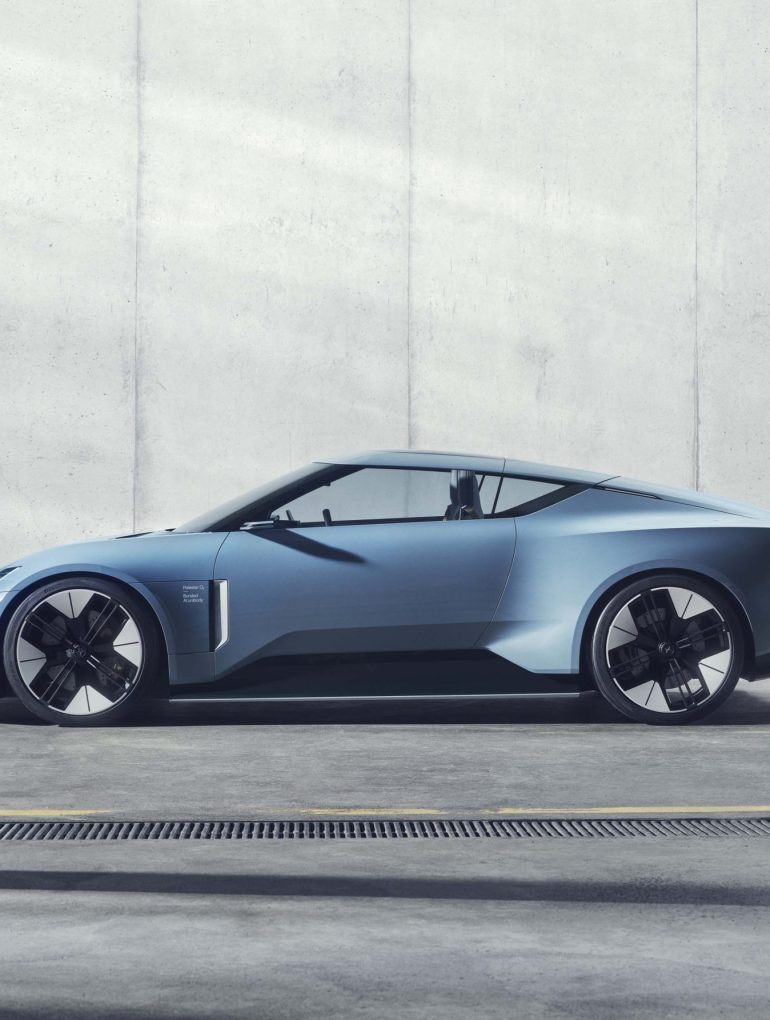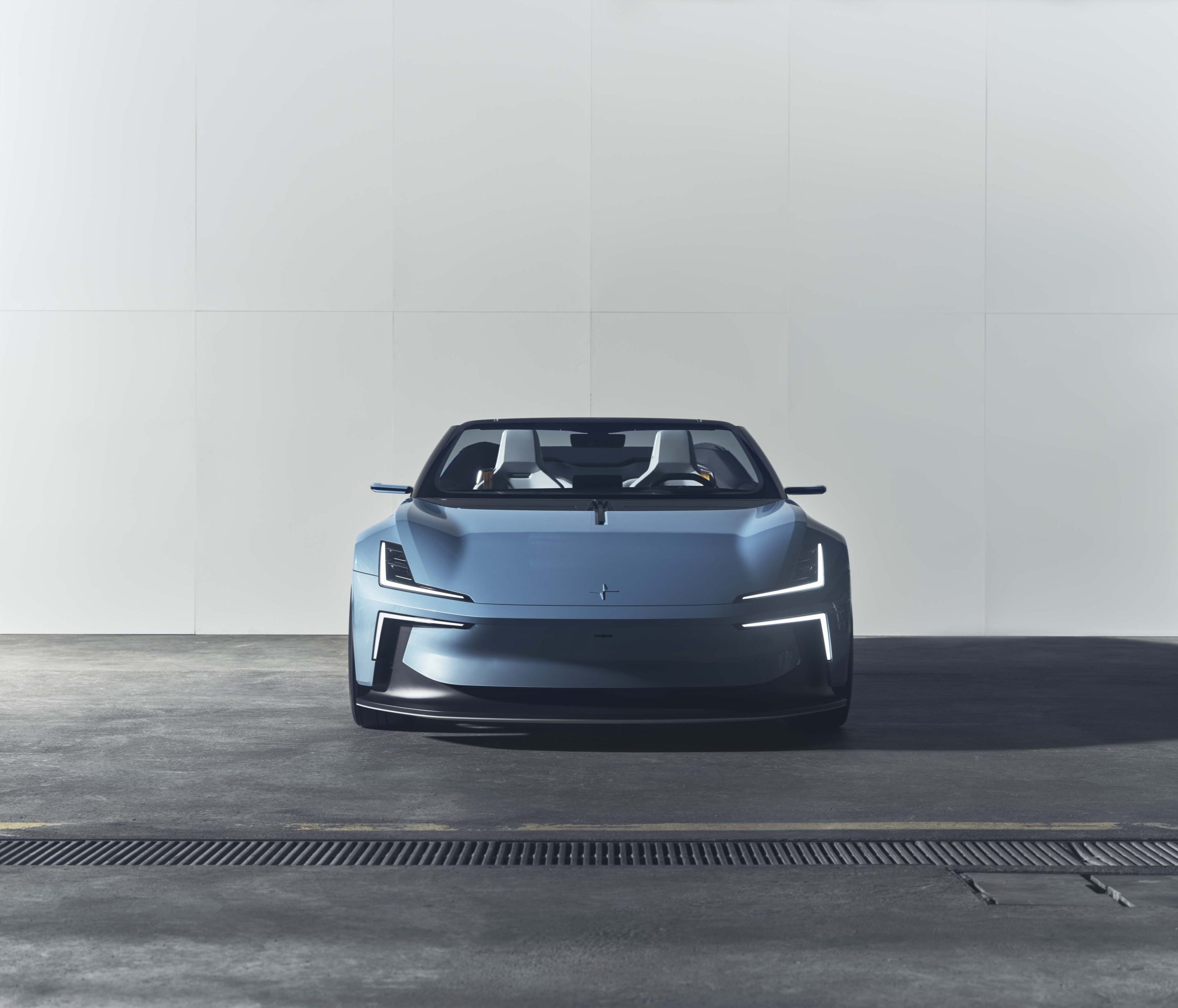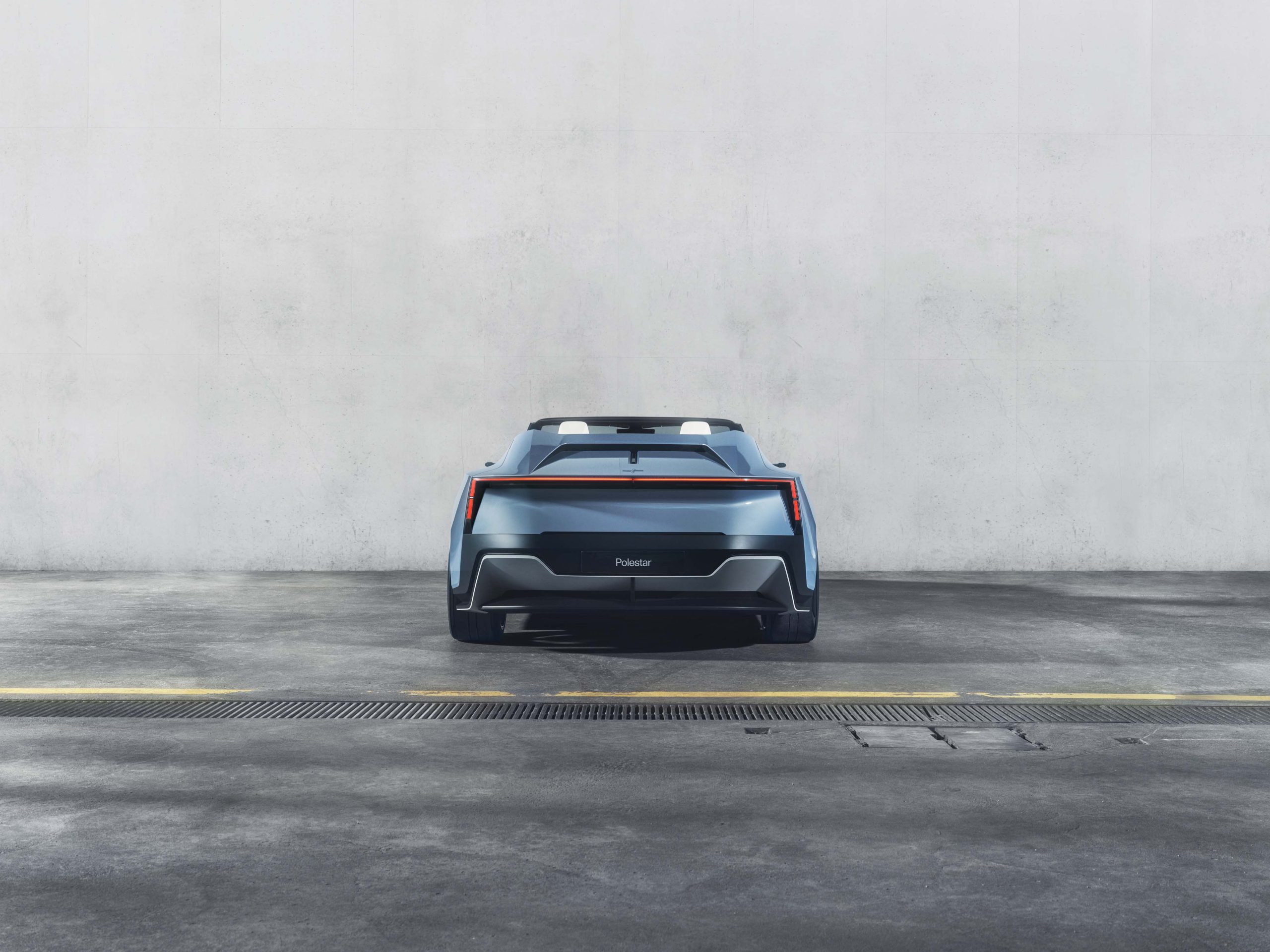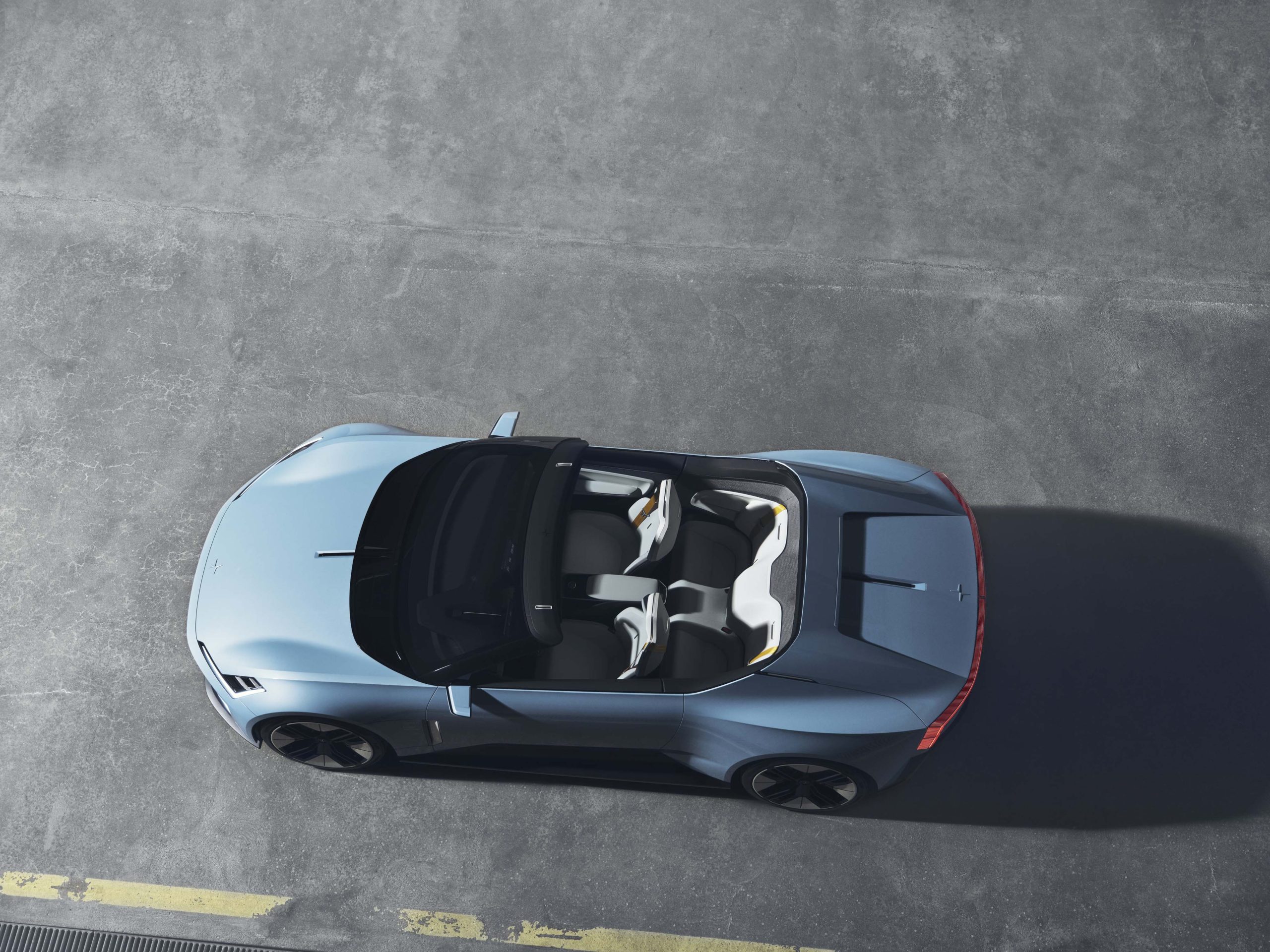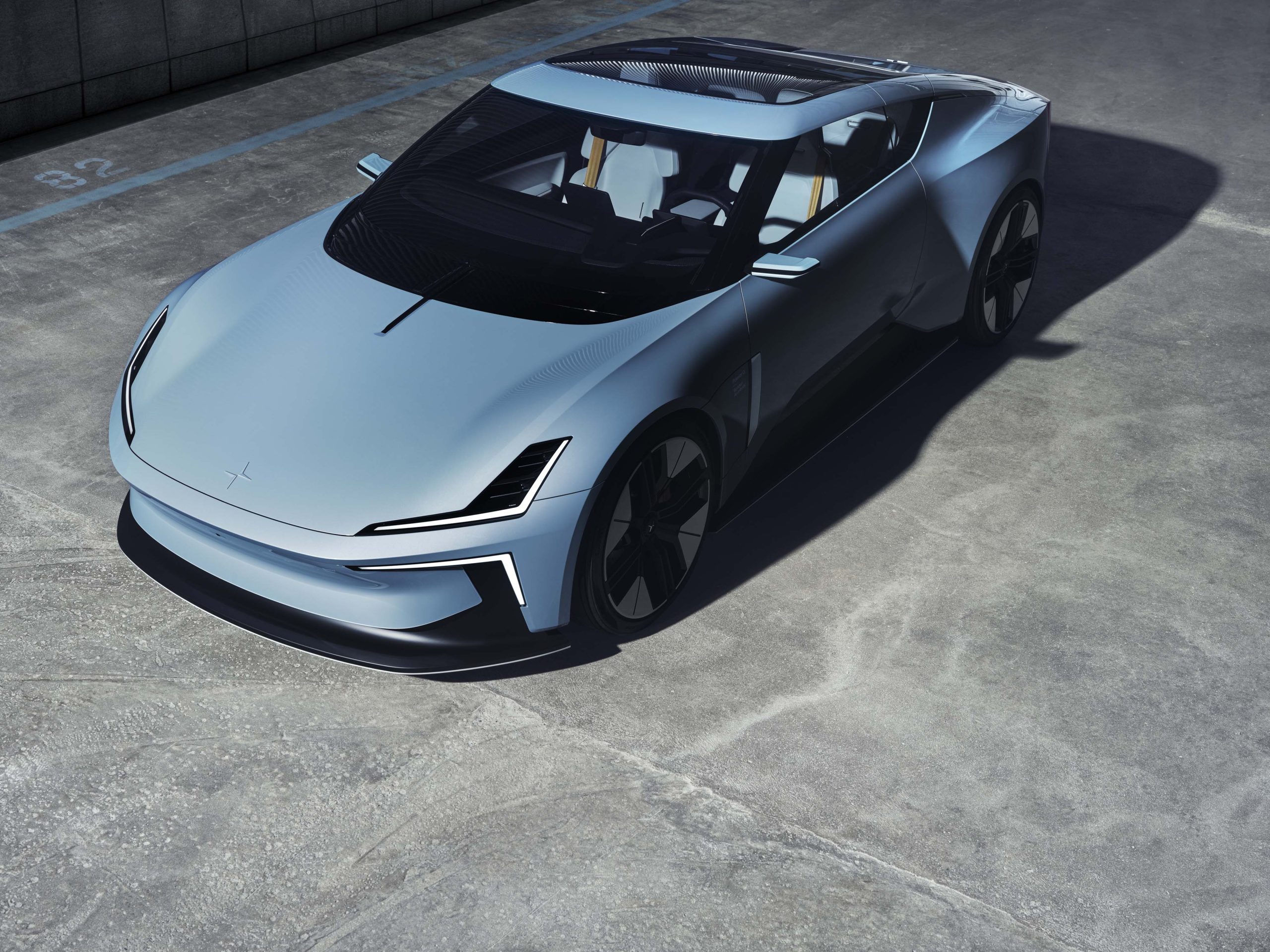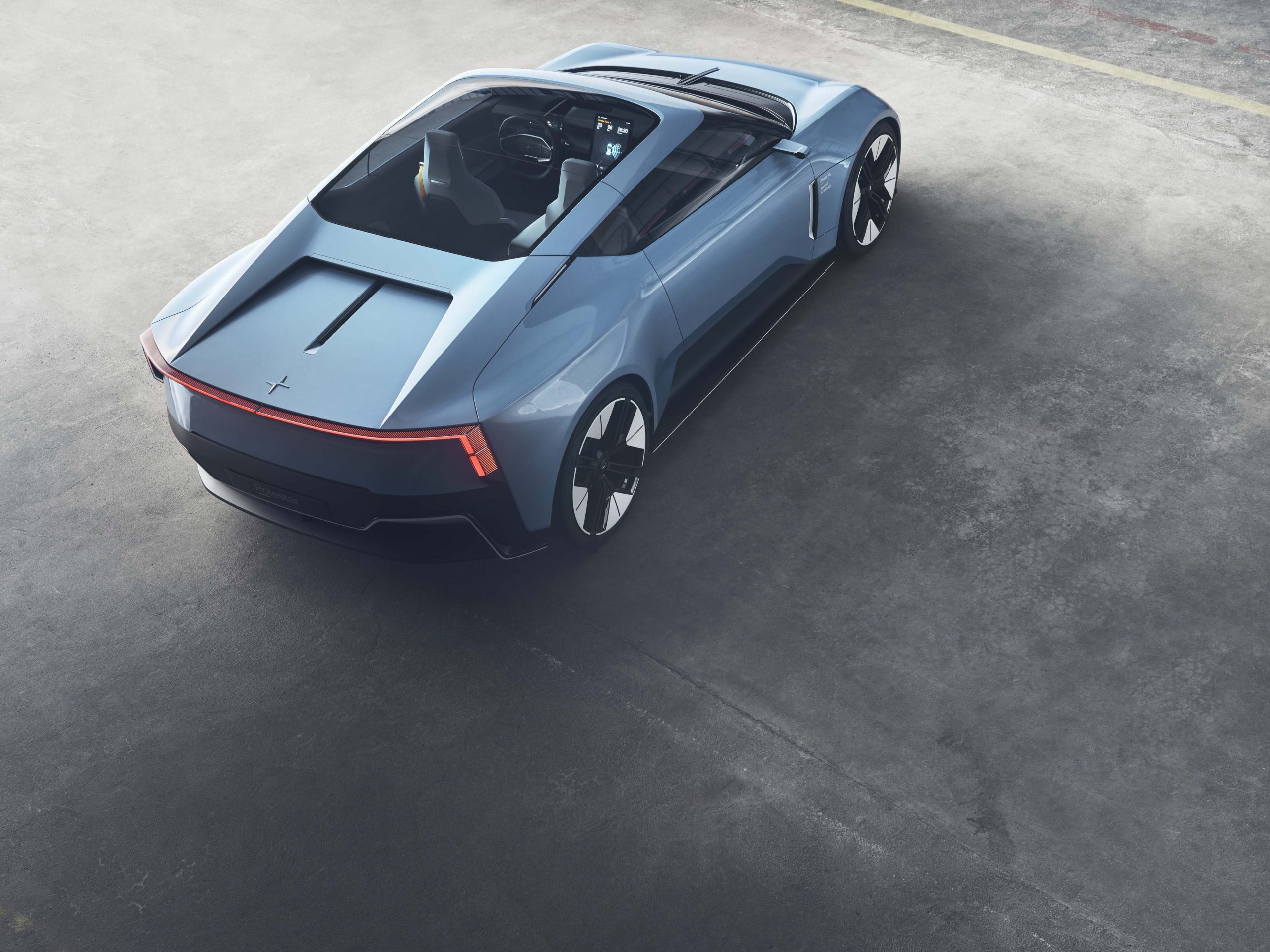Polestar just revealed the Polestar O2 a concept car that aims to redefine sports roadsters for the electric age. The hard-top convertible is the embodiment of Polestar’s vision of performance and exciting driving experience powered by electric mobility.
Polestar CEO Thomas Ingenlath shared, “Polestar O2 is the hero car for our brand. It opens the door to our secret chamber of future potential. This is a taste of what we can design and engineer with the talent and technology we have in-house. It looks incredible, and being able to lower the roof and not hear an engine promises a superb sensation.”
Dynamics
“Polestar O2 is our vision of a new era for sports cars. By mixing the joy of open top driving with the purity of electric mobility, it unlocks a new mix of emotions in a car. But as with all our cars, we are about more than just straight-line sprints. It’s when you turn the steering wheel that the true fun begins,” Polestar’s Head of Design Maximilian Missoni added.
Polestar designed the driving experience of the O2 to be light, lively, and reliable. And at the heart of exciting and spirited driving is predictability. To deliver this, the in-house R&D team of Polestar took the Polestar 5 and improved the bespoke bonded aluminum platform, so it provides tight body control, intuitive dynamics, and high rigidity.
The quality and rigidity of the bonded aluminum platform enables heightened dynamic response. Small roll angles and high roll damping ensures that the handling is tight.
Design
It is clear that the O2 is connected to the Polestar Precept concept car, but with distinct characteristics that sets it apart. The new look of the Polestar O2 shows the ever changing design language of Polestar allowing it to be adapted to different body styles though they still have a few noticeable similarities. O2 was given a low and wide body, compact 2+2 cabin design, minimal overhangs with long wheelbase. The concept car was given classic sports car proportions, but it was able to keep its modern, electric feel.
Maximillian Missoni added, “This car is a meeting point between technology and art, between precision and sculpture, with a determined but not aggressive stance.”
The subtle design features maximize the range of the O2 by manipulating the aerodynamics. It has integrated ducts that enhances laminar air flow over the wheels and the body sides. Even the rear lights have aerodynamic function working as air blades to minimize the turbulence behind the car.
Sustainability and Technology
The interior of the O2 abundantly uses a new thermoplastic mono-material.
“Mono-material” is the term used to describe the use of a single base material to create different components.
For the Polestar O2, they used recycled polyester for all the soft components of the interior like the adhesive, foam, 3D knit fibers, and non-woven lamination. Using mono-materials means that recycling is simplified and it is a huge step towards reducing waste and weight, and it is also a step towards greater circularity.
Polestar sustainability teams believes that materials shouldn’t simply be downcycled, but they should be recycled. To bring this about, Polestar O2 has adapted a new method of controlling recycled content and enhancing the circularity of metal components. They used different grades of aluminum on the chassis to help give a truly exciting driving experience.
Each grade is properly labelled, so that they can be more effectively recycled and for them to be able to keep their properties. High grade aluminum at kept high grade while the other grades keep their distinct characteristics. It helps in keeping greater material efficiency and it helps the in keeping the need for virgin aluminum at the minimum.
Innovation
Social media is a big part of our everyday lives and Polestar O2 knows that. To keep with the times, the O2 was equipped with an autonomous cinematic drone that were added behind the rear seats. Developed together with Hoco Flow, Aerofugia’s consumer electronics brand, the concept drone can be deployed even while the car is moving to be able to record the perfect driving sequence.
Polestar engineers created a specialized aerofoil that rises from behind the rear seats to create an area of negative pressure that enables the drone to take off when the car is moving. The drone operates automatically, capable of following the car at speeds up to 90kph.
The driver can even choose between an atmospheric sequence which is great for a coastline cruise or something similar. There is also a sportier version that the driver can choose. The drone automatically returns to the car after it finishes filming. Video clips taken by the drone can be shared and edited directly from the 15-inch center display when the car is parked.
Maximilian Missoni continued, “We wanted to emphasize the experience you can have with a car like the Polestar O2 in new and unusual ways. Integrating an autonomous cinematic drone was something that allowed us to push the boundaries on the innovation front. Not needing to stop and off-load the drone before filming, but rather deploying it at speed, is a key benefit to this innovative design.”
Polestar O2 adds on the foundation that was laid by Polestar Precept as the embodiment of the company’s vision, technology, and sustainability. Over the next three years, Polestar plans to launch three new cars starting this year. Each car is capable of slowly realizing some of the ideas that were presented and shown by these concept cars.
As part of a proposed business collaboration with Gores Guggenheim, Inc. Polestar also plans to list on the Nasdaq and it is expected to close in the first half of the year.


